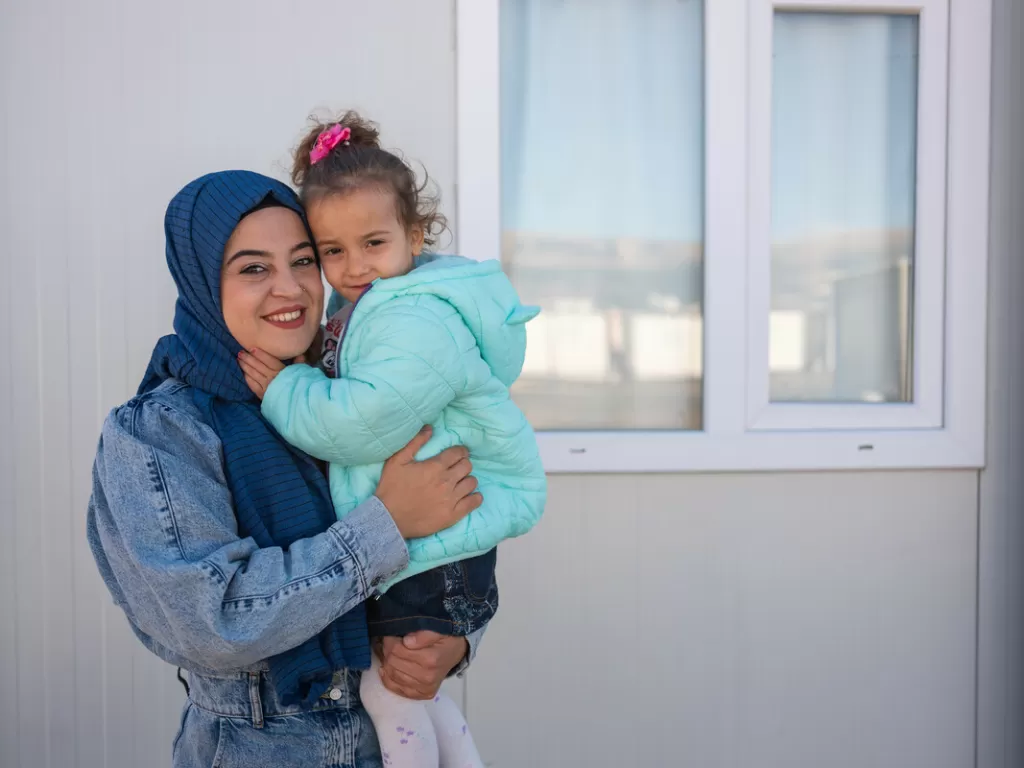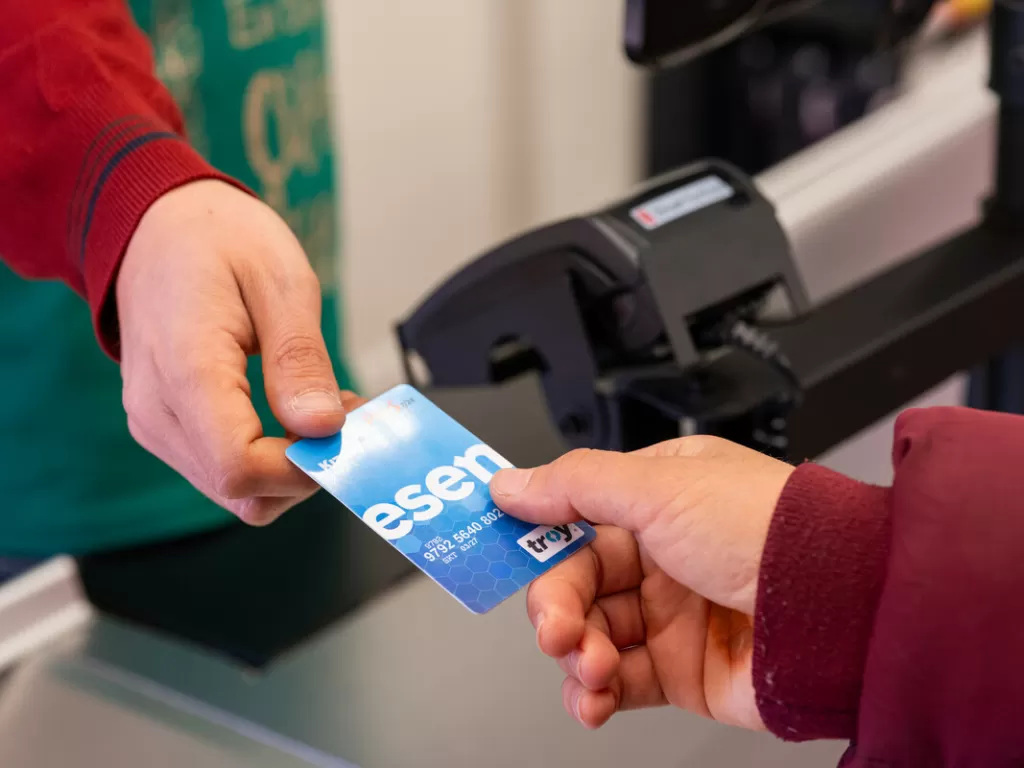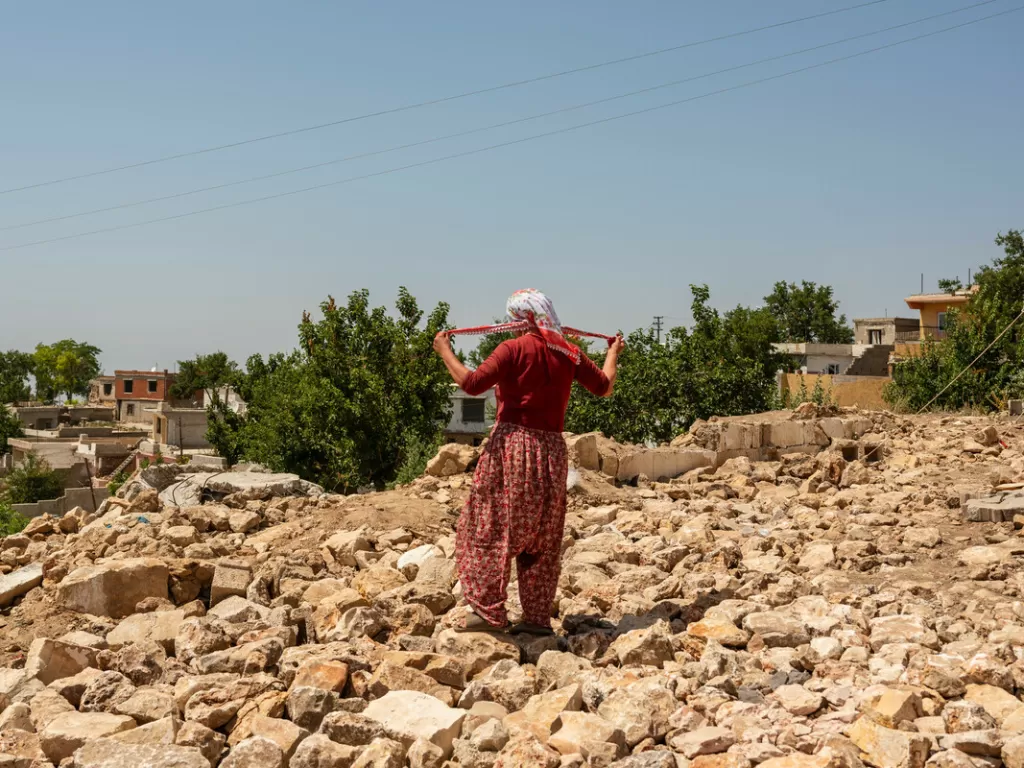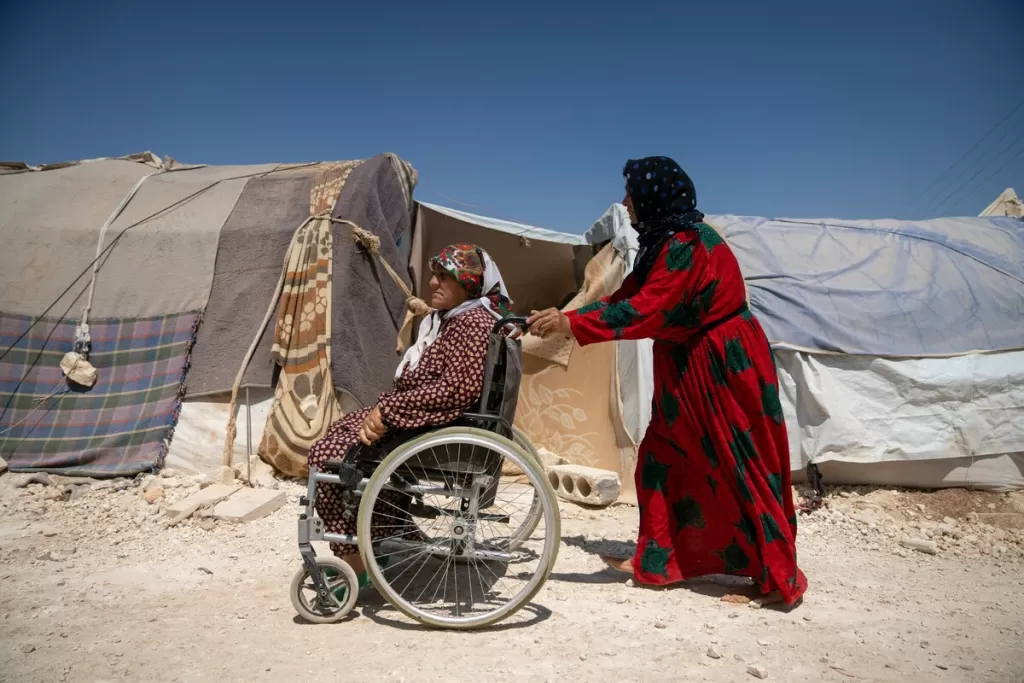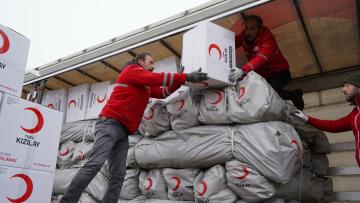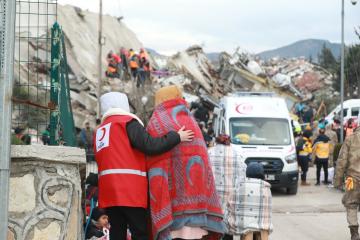In the wake of an earthquake, the speed of aid distribution is crucial. In an instant, a large chunk of the population are left with no access to the things they need to survive.
A key benefit of cash distribution is how quickly it is to access. It is faster than traditional aid delivery methods, such as shipping and distributing physical goods from other regions and also comes at a much lower cost to the environment.
Cutting out the shipping and distribution of goods also makes it much more cost-effective, and in situations where supermarkets and local markets are open, the spending provides a cash injection helping to stimulate local economies by creating demand for goods and services.
David Bell, Programmes and Finance Manager, at the DEC, explains the benefits:
“The use of cash assistance in contexts such as earthquakes is one of the most sustainable ways to support affected communities.
"The freedom it provides helps people transition from emergency relief eventually into self-reliance, enabling them to meet their own priority needs in the most appropriate way. This helps to reduce the long-term dependency on aid and restore a sense of normality to people’s lives; something that is often affected when relying on standard packages of aid goods.
"When people are given the freedom to support themselves, it is easier for cultural sensitivity to be observed, and when thinking in the long term, letting recipients invest in their livelihoods, education, and other areas that promote self-sufficiency. All these factors are key when recovering from a disaster of this scale.”

